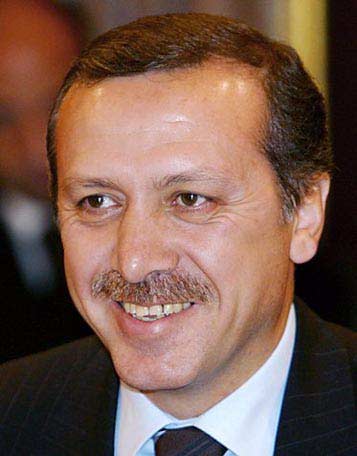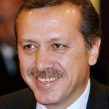
AKP Prepares a Comprehensive Plan to Address the Kurdish Question
Publication: Eurasia Daily Monitor Volume: 6 Issue: 142
By:

Turkish Prime Minister Tayyip Erdogan on his way to Syria revealed that the Justice and Development Party (AKP) government has launched a comprehensive plan to address the Kurdish question. Erdogan said, "We have launched an initiative, whether you call it the Kurdish problem or the southeast problem, or as some recently named it, the Kurdish initiative." Erdogan added that together with the ministers who are members of the National Security Council (MGK) "we have launched initiatives. The interior minister will be responsible [for the plan], and he will have talks with all relevant ministries, the General Staff, National Intelligence Organization (MIT) and parliamentarians from that region" (Hurriyet, July 23).
Erdogan provided no further details concerning the plan, but it appears that it might closely follow the AKP’s program. In addition Erdogan referred to his historic speech in May 2005 in the predominantly Kurdish populated city, Diyarbakir, where he outlined a new direction in Kurdish-Turkish relations (Radikal, July 23). In that speech Erdogan acknowledged that the Turkish state had made mistakes concerning the Kurds and its handling of the Kurdish issue, and that it was time to confront this legacy. In the same speech, he advocated a new concept of national identity for a multi-ethnic and multi-religious Turkey. Moreover, he promised that his government would resolve this issue by adopting more democratic, cultural rights and promoting prosperity, while distancing himself from regional and religious nationalism (Anadolu Ajansi, May 12, 2005).
In the AKP program, the Kurdish question was outlined as following:
"Our Party shall follow a policy guarding the happiness, welfare, rights and freedoms of the regional population, in a manner which goes beyond the reality of preventing terrorism that threatens the region, the integrity of Turkey, as well as the unitary State structure; a sustainable policy which goes beyond the identification of this reality, respectful to the sensitivities of the entire society, efficient and aimed at solving problems at their root" (www.eng.akparti.org.tr, accessed on July 23).
In addition, the AKP program promotes the cultural diversity in this region, on the condition that Turkish remains the official language, but the AKP regards the cultural activities in languages other than Turkish, including broadcasting, as an asset which reinforces and supports the unity and integrity of Turkey
Erdogan revealed his government’s plan at an interesting juncture, since the Kurdistan Workers’ Party (PKK)’s imprisoned leader Abdullah Ocalan, declared one month ago that he is preparing a draft plan which he intends to reveal on August 15 (EDM, July 10). While many observers concentrated on whether Ocalan will end the long standing campaign of violence in the Kurdish region, the Turkish press started to pay greater attention to Ocalan (Hurriyet, July 18). Erdogan as a result of revealing the AKP’s plan has successfully regained the initiative.
The main difference between Ocalan and the AKP’s plans lies in the mechanism which outlines how to reach out to the PKK militants in the mountains and convince them to lay down their arms. The AKP wants to establish a mechanism through which the Kurdish Regional Government (KRG) in northern Iraq, Turkish authorities and the U.S. authorities involved in bringing the PKK militants to the U.N.’s Mahmur refugee camp in northern Iraq (where 12,000 Turkish Kurds fled from Turkey in early 1990’s), allowing them to return to normal life (Taraf, July 24).
Abdullah Ocalan on the other hand, considers that the U.S. and Britain are preparing a plan to weaken his influence over the PKK. Thus, he argues that Turkey, without seeking any help from the U.S., should start negotiating with the PKK. To do that, he proposes the establishment of a wise man commission to play a positive role in the peace process. The commission may include intellectuals, lawyers, physicians and scientists. "When the day comes that we put down our arms, it will only be into the hands of such a commission, provided it is a commission determined to achieve justice," Ocalan added. In addition, he recommends that a truth and justice commission should be formed to reconcile society. Moreover, he suggests that Kurdish identity must be protected in the constitution and integrated into the legal system (Sabah, July 24).
Erdgoan’s latest efforts are welcomed by the majority of Turkish intellectuals, although some pro-Kurdish figures remain skeptical. For instance, Selahattin Demirtas, the Chairman of the pro-Kurdish Democratic Society Party’s (DTP) parliamentary group, said that if the government wanted a durable and permanent solution to the Kurdish question, it had to work with Kurds and Ocalan. "Any initiative which is taking place without consultation with the Kurds will not, I am afraid, be accepted by the public. If the government is sincere about finding a permanent solution to the problem, it should not hold back from talking to Ocalan as a counterpart," he said (Today’s Zaman, July 23). Similarly, NGO’s in the Kurdish region approve of Erdogan’s initiative; however they want him to include Ocalan and the PKK as equal counterparts in any negotiations (Radikal, July 23).
Opposition parties have also criticized Erdogan’s initiative. The Deputy Chairman of the Nationalist Action Party (MHP), Oktay Vural argued that the AKP is adopting the DTP’s plans and stated that terrorism cannot be defeated at the negotiating table (Vatan, July 23). The Chairman of the Republican Peoples Party (CHP), Deniz Baykal, said that Erdogan is raising expectations, but not adopting realistic policies. The best policy to address the Kurdish question is to provide adequate education for Kurdish children and apply affirmative action policies to the Kurdish region in order to stop them supporting terrorism (Vatan, July 23).
No matter which proposal will dominate the public discourse in future, Turkey appears to be on the verge of resolving the Kurdish question. However, the AKP government is in a delicate position. On the one hand, if its attempts fail to bring the violence to an end it could be seen as negotiating with terrorists. Whereas, if it succeeds in bringing the violence to an end, the AKP government’s efforts will be remembered as a historic step toward resolving this issue.




